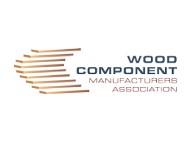The accelerated shift has made it extremely difficult to manage or even stay aware of what is going on in the industry. Thankfully, we’re not alone in our struggle and industry organizations like the Wood Components Manufacturers Association (WCMA) continually provides us tools to use to learn more about industry shifts so we can properly adapt to them.
In August, several Yoder Lumber team members travelled to Grand Rapids, Michigan to join the WCMA on their annual Fall tour. Grand Rapids has been a hub of furniture manufacturing in the US since the 1800’s. This was due to an abundance of hardwoods as well as proximity to shipping lanes on the Great Lakes. The city became well known for high-quality furniture manufacturing and location rich in skilled labor. This legacy of furniture manufacturing has diminished slightly from its peak, but it continues today with manufacturers like Herman Miller, Steelcase, and Haworth.
On the tour we saw a range of facilities. Several companies such as Klise Manufacturing and the Holland Bowl Company were producing niche-products with mostly-antique machinery and methods. These companies were focused on hitting markets that value quality and demand hard-to-find products that very few manufacturers currently produce. These manufacturers were both quite small in both employment and facility size but they had loyal customers and very unique products.
We also saw several manufacturers that are using hardwood alternatives such as plywood and laminates to supply the furniture and fixtures industries with advanced custom-manufactured materials. Davidson Plyforms uses presses to mould plywood into flowing curves in a wide range of patterns and materials. If you’ve ever seen the iconic Herman Miller Eames Lounge Chair you’ve seen some of their work. Much of what they produce would be impossible to do economically from solid hardwoods. Paladin Industries also produces primarily composite products, using advanced CNC and 3-D lamination technologies to shape and coat products for use in commercial and high-end residential cabinetry, components, and even plastics. The level of quality being produced was astonishing; customers could select any finish from mirror-gloss colors to any species of wood.

The last stops on our tour were bright opportunities showing how adaptable the hardwood industry can be. The Michigan Career and Technical Institute (MCTI) is an educational center for adults with disabilities in Michigan. They provide a range of programs for disabled citizens and veterans to learn career skills, ranging from Automotive Technology to Printing to Cabinetmaking. The Cabinetmaking program partnered with Weinig to ensure that high-quality and updated technology was available to the students. MCTI demonstrated the forward-thinking philosophy of the Michigan Dept. of Health & Human Services, focusing on helping those with disabilities make their own way as opposed to treating them as outcasts from society. Lastly, we visited Stiles Machinery. Stiles is well-known in the industry as an advanced equipment provider and educational resource. They showed a wide range of products and services focused on improving labor utilization and capabilities.
What was most striking on the tour was the distinct range of products and services that were featured. In a city like Grand Rapids, known for years as a hub of traditional hand-built solid hardwood furniture, it was surprising how many alternative materials and methods are being utilized. The hardwood industry used to be secluded from alternative materials. This has changed dramatically in the last few decades, with many alternative materials now being superior in many ways for certain applications.
The hardwood industry can no longer claim to be the “only” way to produce certain products like cabinetry or furniture. It is becoming increasingly obvious that the only way the hardwood industry can survive is to be exponentially more flexible in our processes and utilization of technology. Additionally, our industry must become much more vocal in letting potential customers know about the ways that hardwood is superior to these alternatives; there are many customers that now default to alternatives like plywood or laminates as opposed to using them only in special cases. Hardwoods can have a long-term place in the manufacturing space, we just need to work together as an industry to ensure that this is the case.
Photographer Credits: Amy Snell, WCMA








